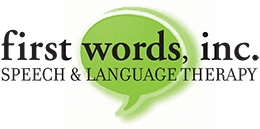The role of parents and caregivers.
Early Intervention
Treatment from trusted adults.
Therapeutic strategies
Implemented on a regular basis.
repeated exposure
In comfortable familiar settings.
―
You, the parent or guardian, are the expert on your child. You know your child's preferences, skills, strengths, and weaknesses. You know your child’s favorite toys and activities. You know how to make your child laugh and become engaged. You are more important to your child than any therapist or Early Intervention provider.
Parents and caregivers play an essential role in their child’s treatment. Therapeutic strategies are going to be most effective if they are performed by adults who have a good relationship with the child and if they are implemented on a regular basis. Research supports this.
What is Early Intervention?
1.
Toddlers learn by doing. Therefore, treatment sessions will focus on the things that children and families do every day. While specific daily routines will vary from family to family, most families spend time together doing things like eating, caring for one another, performing chores, playing, and engaging in learning activities. These all provide wonderful and regular opportunities for language learning.
2.
Learning within the context of daily routines helps to make what children learn immediately useful and functional. It provides them with meaningful moments for repeated exposure and practice.
3.
Treatment sessions will take place during the child’s daily routines so the speech-language pathologist can coach the family. When parents and caregivers know how to best support their child by embedding strategies into their daily routines, it helps to promote speech-language learning, as well as generalization and mastery of desired skills.


























